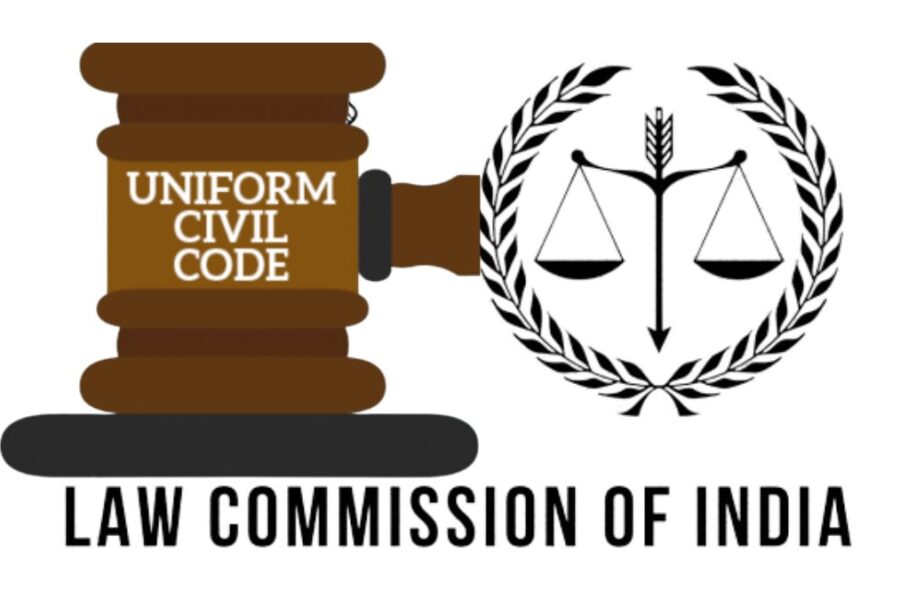Article 44 of the Indian Constitution, found within the Directive Principles of State Policy, introduces the concept of a Uniform Civil Code (UCC). This code proposes the replacement of religious-based personal laws with a unified legal framework applicable to all citizens, regardless of their religious affiliations. The aim is to establish consistent regulations across diverse matters such as marriage, divorce, inheritance, and adoption, fostering equality and justice by subjecting all individuals to the same set of civil laws. In India, a nation marked by the coexistence of various religious communities, debates surrounding the implementation of a Uniform Civil Code have gained prominence. Presently, different religious groups adhere to their distinct personal laws in familial and civil affairs, with Hindus following Hindu law, Muslims adhering to Islamic law, Christians governed by their own regulations, and so forth.
What are the Challenges in Implementing UCC?
Implementing a Uniform Civil Code (UCC) in a diverse and pluralistic society like India is a complex task, and several challenges arise in the process:
Diverse Personal Laws and Customs:
Complexity: India is home to various religions, cultures, and traditions, each with its own set of personal laws and customs. Harmonizing these diverse legal frameworks into a single code is a formidable challenge due to the intricate nature of these laws.
Resistance from Religious and Minority Groups:
Religious Freedom Concerns: Many religious and minority groups perceive the UCC as a threat to their religious freedom and cultural autonomy. They fear that a uniform code might impose majority views, disregarding their distinct identities and traditions.
Constitutional Concerns:
Article 25: Some argue that the UCC could potentially violate constitutional rights, particularly under Article 25, which guarantees the freedom of conscience and the right to freely profess, practice, and propagate religion.
Lack of Political Will and Consensus:
Political Opposition: There is a lack of political will among key stakeholders, including the government, legislature, judiciary, and civil society, to initiate and implement a UCC. This lack of consensus hampers the legislative process.
Potential for Communal Tensions:
Societal Conflicts: There are apprehensions that the introduction of a UCC might provoke communal tensions and conflicts within society, as different communities may resist changes that they perceive as undermining their cultural and religious practices.
Practical Difficulties and Complexities:
Drafting and Codification: Implementing a UCC would require a massive undertaking involving the drafting, codifying, harmonizing, and rationalizing of various personal laws. This is a complex and time-consuming process.
Enforcement Mechanism:
Compliance and Awareness: Establishing a robust mechanism for the enforcement of the UCC and creating awareness among the populace about the new legal framework are essential. Without proper enforcement, the code’s effectiveness may be compromised.
Some Important Cases Related to UCC
Shah Bano Case (1985):
Background: This landmark case dealt with the issue of maintenance for Muslim women after divorce. Shah Bano, a Muslim woman, was denied maintenance by her husband after he divorced her.
Significance: The Supreme Court’s decision affirmed the right of Muslim women to claim maintenance under Section 125 of the Criminal Procedure Code, irrespective of personal laws. The case sparked debates on the need for a UCC.
Sarla Mudgal Case (1995):
Background: This case addressed the issue of bigamy and conversion to Islam for the purpose of contracting a second marriage without dissolving the first marriage.
Significance: The Supreme Court held that a Hindu husband, after converting to Islam, cannot evade the obligations of his first marriage under Hindu law. The case emphasized the need for legal reforms and a UCC.
John Vallamattom Case (2003):
Background: This case dealt with the conflict between the Christian personal laws and the provisions of the Indian Divorce Act, 1869.
Significance: The Supreme Court held that divorce obtained under the Canon Law by a Christian husband cannot be questioned under the Indian Divorce Act, emphasizing the need for clarity and uniformity in personal laws.
Shayara Bano Case (2017):
Background: This case challenged the constitutionality of the practice of triple talaq (instantaneous divorce) among Muslims.
Significance: The Supreme Court, in a historic judgment, declared the practice of instant triple talaq unconstitutional, citing it as against the principles of gender justice and equality. While the judgment focused on a specific issue, it reignited discussions on broader reforms, including the UCC.

